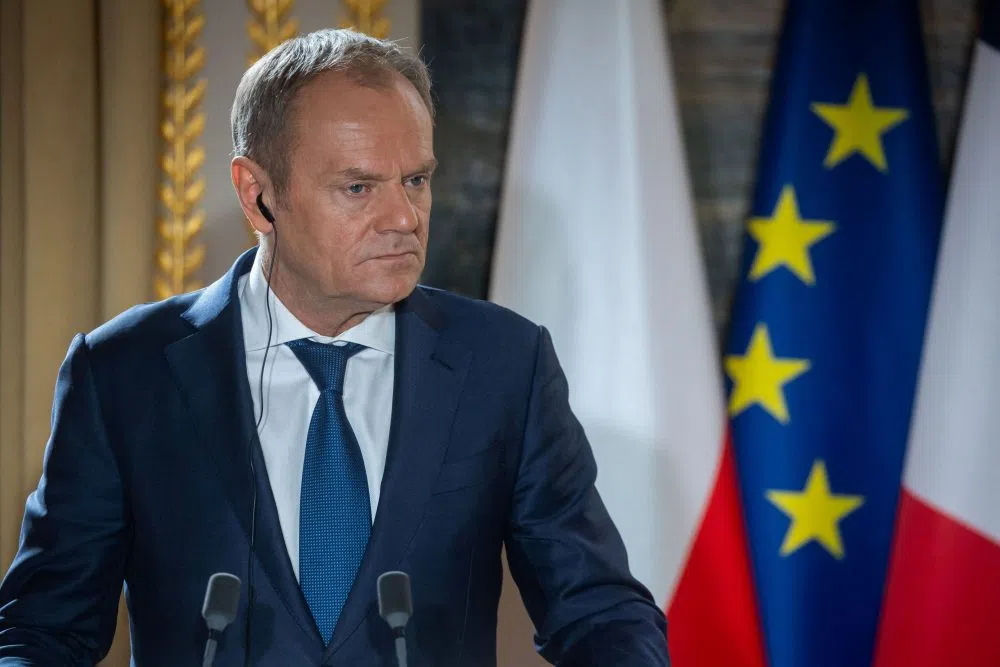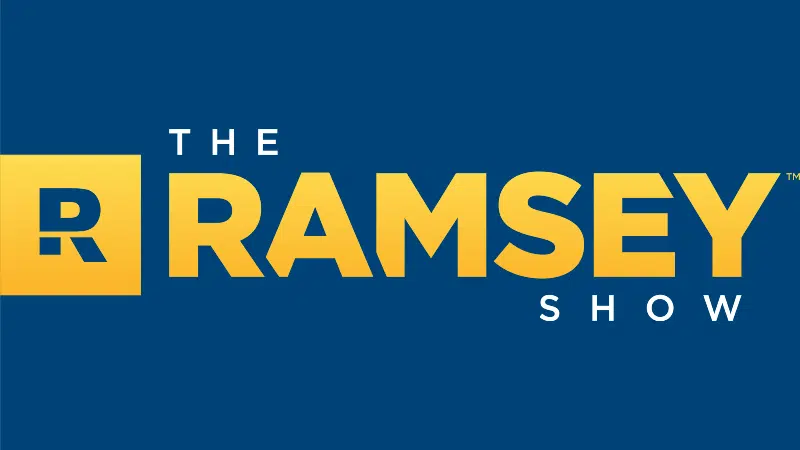UPDATED 1:39 P.M.
BERLIN/PARIS (Reuters) -German Chancellor Olaf Scholz said on Monday that any relativization of NATO’s mutual defence clause was “dangerous” and only served Russia, following comments by former U.S. President Donald Trump questioning the alliance’s key provision.
Trump, who is seeking reelection, sparked outrage among Western partners during the weekend after suggesting the United States might not protect NATO allies who are not spending enough on defence from a potential Russian invasion.
“Any relativisation of NATO’s guarantee of assistance is irresponsible and dangerous,” Scholz told reporters during a joint news conference with Polish Prime Minister Donald Tusk. “It is solely in Russia’s interests. Nobody should play around or trade with Europe’s security.”
Tusk traveled to Paris and then Berlin seeking closer ties with Europe’s two largest powers as the war in Ukraine enters its third year and Europe’s capitals eye the possibility of Donald Trump returning to the White House.
There is no alternative to the partnership between Europe, NATO and the United States for facing mounting security risks, he said earlier on Monday in a joint statement with French President Emmanuel Macron.
“It is probably here in Paris that the words from ‘The Three Musketeers’ by Alexandre Dumas resonate most clearly: ‘All for one, and one for all’,” he said, referring to Dumas’ novel.
Still, it is in the interest of all NATO countries to increase funding for joint military capabilities, regardless of what Trump said, Tusk told reporters in Berlin.
“There is no reason for the EU to be weaker than Russia” he said, adding that Europe should achieve “greater air defence capabilities and ammunition production capabilities” within a year or so.
Germany will reach the NATO target of spending 2% of economic output on defence this year – and will continue to reach it in the following years, Scholz said.
Warsaw, Paris and Berlin see EU unity on defence and a ramping up of the 27 member states’ support for Ukraine as crucial at a time when U.S. backing of Kyiv is wavering amid political infighting in Washington.
“Europe has to get its act together… This is a matter of answering a question about what will happen if Trump wins. We don’t have time. We must have bigger defence industry capacity,” said a Polish government source.
The source added that Europe urgently needed joint production of ammunition and that Poland was no longer blocking “strategic autonomy” – making Europe less dependent on others.
The shift has been noticed.
“Now for the first time a Polish government is saying that strengthening the European Security Defence Capabilities area is not a contradiction to a strong NATO,” said Dietmar Nietan, a German official in charge of cooperation with Poland.
Relations between Poland and Germany were strained by eight years of nationalist rule in Warsaw. The campaign for October’s Polish election saw the Law and Justice (PiS) party, in power from 2015 to 2023, cast Berlin as villain on everything from migration to energy.
However, analysts say the return of former European Council President Tusk to prime minister makes it easier to reinvigorate the “Weimar Triangle” platform of political cooperation between Germany, France and Poland created in 1991.
“Good cooperation between Poland, France and Germany is good for Europe,” said Scholz. “So we are going to capitalize on this format as much as we can.”
Macron said it was a joy to have Tusk back, “and have through your government, partners who we can trust, are pro-European and clear on European security and the major challenges we face.”
A French diplomatic source said that injecting new energy into the European project was necessary in an important electoral year for Europe and the United States.
The French source said talks would focus on issues from combating Russian disinformation and helping Ukraine to strengthening the European defence industry.
“Our strength lies in the fact that we in France, Poland and Germany look at our Europe from different perspectives,” German Foreign Minister Annalena Baerbock said ahead of arriving in Paris for a meeting of the foreign ministers of the Weimar Triangle. “People in Europe rightly expect that we will develop impulses from this.”
($1 = 4.0093 zlotys)
(Reporting by Marek Strzelecki, Alan Charlish, Anna Wlodarczak-Semczuk in Warsaw, Sarah Marsh, Andreas Rinke and Alexander Ratz in Berlin, Christoph Steitz in Frankfurt, John Irish in Paris; Editing by Andrew Cawthorne, Alex Richardson and Jonathan Oatis)
———————————
PARIS (Reuters) – U.S. President Joe Biden and top western officials criticized former president Donald Trump on Sunday after he suggested the United States might not protect NATO allies who aren’t spending enough on defence from a potential Russian invasion.
“America’s leadership on the world stage and support for our allies is critical to keeping the American people safe here at home,” said Biden in a statement.
“If my opponent, Donald Trump, is able to regain power, he is making it clear as day that he will abandon our NATO allies if Russia attacks and allow Russia to ‘do whatever the hell they want’ with them.”
Trump, speaking during a political rally in South Carolina and appearing to recount a meeting with NATO leaders, quoted the president of “a big country” that he did not name as asking, “Well sir, if we don’t pay, and we’re attacked by Russia – will you protect us?”
“I said: ‘You didn’t pay? You’re delinquent?’ He said: ‘Yes, let’s say that happened.’ No I would not protect you. In fact I would encourage them to do whatever the hell they want. You gotta pay.”
NATO’s 31 members have agreed on a target of spending at least 2% of gross domestic product on defence, but NATO estimates have shown that only 11 are spending that much.
His comments drew a swift rebuke from NATO and U.S. allies.
“Any suggestion that allies will not defend each other undermines all of our security, including that of the US, and puts American and European soldiers at increased risk”, said NATO Secretary General Jens Stoltenberg in a written statement.
“Any attack on NATO will be met with a united and forceful response,” he added, reacting to remarks on Saturday by Trump, who is likely to be the Republican nominee in this year’s U.S. presidential election.
Polish Defence Minister Wladyslaw Kosiniak-Kamysz also weighed in.
“NATO’s motto ‘one for all, all for one’ is a concrete commitment. Undermining the credibility of allied countries means weakening the entire NATO,” he wrote on social media platform X.
“No election campaign is an excuse for playing with the security of the Alliance.”
Germany’s foreign ministry posted the message ‘One for all and all for one’ with the hashtag #StrongerTogether on its English language X account following Trump’s comments.
EU Council President Charles Michel said: “Reckless statements on #NATO’s security and Art 5 solidarity serve only (Russian President Vladimir) Putin’s interest.”
Article 5 of the NATO treaty says that an armed attack against an alliance member will be considered an attack against them all, triggering collective self-defence.
Referring to Trump’s comments, EU Internal Market Commissioner Thierry Breton in an interview with France’s LCI television said, “We have heard that before … Nothing new under the sun.”
“He maybe has issues with his memory, it was actually a female president, not of a country, but of the European Union,” Breton added, referring to European Commission President Ursula Von der Leyen and a conversation she had with Trump in 2020.
“We cannot flip a coin about our security every four years depending on this or that election, namely the U.S. presidential election,” Breton said, adding European Union leaders understood the bloc needed to boost its own military spending and capacities.
“President Trump got our allies to increase their NATO spending by demanding they pay up, but Joe Biden went back to letting them take advantage of the American taxpayer,” said Jason Miller, Trump’s senior campaign advisor.
“When you don’t pay your defense spending you can’t be surprised that you get more war.”
(Reporting by Tassilo Hummel, Victoria Waldersee, Sabine Siebold and Foo Yun Chee,; Additional reporting by Anna Wlodarczak-Semczuk and Nathan Layne; Editing by Frances Kerry, Giles Elgood and Diane Craft)




Comments